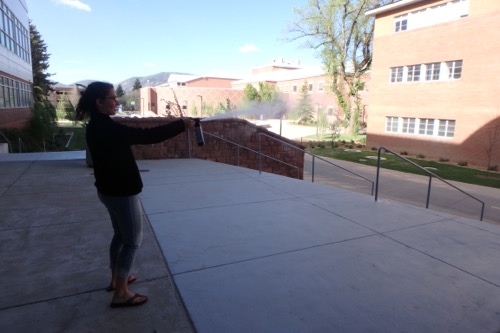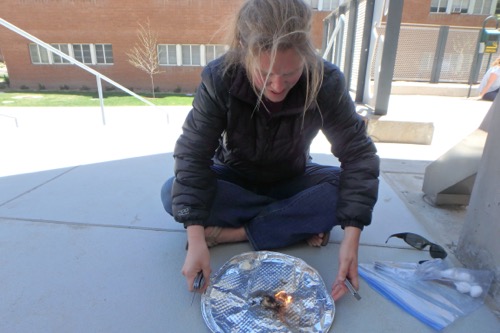Spring and summer are busy for teachers. End of year grading, standardized tests, juggling summer schedules to accomodate work and play, conferences, summer jobs, and planning for the next year... summer break is much busier for teachers than most people think.
Spring and summer are also busy for Arctic scientists. In the Arctic, summer lasts only a few short months, so you must be absolutely prepared in order to finish your field work during the tiny window of good weather. There are flights to schedule, gear to organize, permits to acquire, field work to plan, and training to complete.
This year I am both a teacher and an Arctic scientist, so I have been doubly busy.
Arctic Field Training
This spring I attended Arctic Field Training with Ellie in Flagstaff. This gave Ellie and I the opportunity to work together and prepare to work safely in the Arctic. We started a fire without matches, learned what to do in an emergency (it's not just about food, water, and shelter – a positive attitude is crucial), and practiced bear safety. While grizzly sightings are rare at Lake Peters, big animals are always a huge safety concern when doing field work. While I have spent time in areas with black bears, I was unfamiliar with grizzlies. I now have the knowledge to react appropriately during a bear encounter.
 Ellie Broadman practices using bear spray during Arctic Field Training.
Ellie Broadman practices using bear spray during Arctic Field Training.
 Rebecca Harris practices starting a fire with flint and cotton balls during Arctic Field Training (photo: Ellie Broadman).
Rebecca Harris practices starting a fire with flint and cotton balls during Arctic Field Training (photo: Ellie Broadman).
Wilderness First Responder Training
Wilderness medicine is defined as emergency care in a remote setting. I spend a lot of time working and playing in wilderness, so I must be prepared for a backcountry medical emergency. I have been a Wilderness First Responder for four years, and a Wilderness EMT for three. This year I needed to recertify my WEMT, so I attended a weekend training in Salt Lake. Being fresh with these skills will be even more important this summer. Lake Peters is hours from any medical facility, even under ideal conditions. Under bad conditions, it can take weeks to evacuate an injured or sick person from Lake Peters. While no one likes to imagine the worst, planning for potential problems keeps us safer. I feel confident knowing that every member of our team has some level of wilderness medicine training so that if the worst does happen, we will be prepared.
 Rebecca Harris and others refresh their Wilderness First Responder Skills (photo: Bethany Elson).
Rebecca Harris and others refresh their Wilderness First Responder Skills (photo: Bethany Elson).

Comments
Add new comment